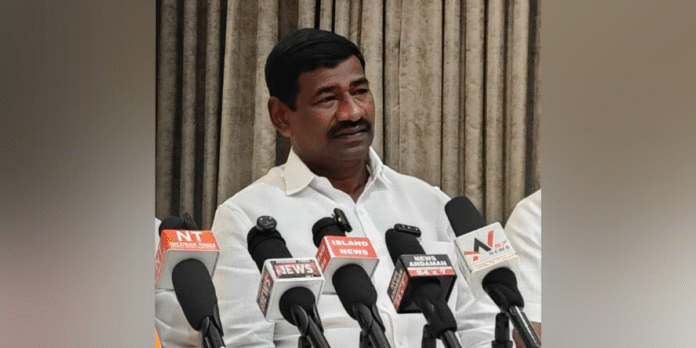Susai Raj, National Coordinator of the Kisan Congress, has drawn renewed attention to two persistent concerns in the Andaman and Nicobar Islands: prolonged electricity disruptions and the continued failure to fill seats reserved for local students at Pondicherry University.
During his visit to the islands, Raj said he had witnessed first-hand the difficulties residents face due to frequent and extended power outages. He also pointed to the persistent problem of unfilled reserved seats in higher education, describing both as matters with direct impact on the quality of life and future prospects of the local population.
He stated that these issues are not merely administrative lapses but challenges that touch the everyday experiences of islanders. He further said he intends to escalate the matter to the Congress leadership, including Rahul Gandhi, in hopes of securing swift solutions.
Electricity reliability has been a recurring frustration in the islands. Households, businesses, and essential services have all been affected by intermittent supply, with outages often occurring without warning. While authorities have made repeated assurances about improving infrastructure and supply capacity, residents continue to report unpredictable disruptions that interfere with daily activities and economic stability. Raj’s public remarks have brought the matter back into focus, reinforcing demands for a sustained resolution.
On the education front, the issue centres around specific seats at Pondicherry University allocated for Andaman and Nicobar Islands students. According to Raj, these opportunities remain underutilised, with vacancies persisting year after year despite their intended purpose of promoting inclusion and expanding academic access for students from the islands. The inability to fill them, he suggested, indicates either procedural obstacles or shortcomings in outreach and awareness.
The unutilised seats represent a significant loss for students in a region where higher education options are limited and often require relocation to the mainland. For many families, such moves bring financial and logistical hurdles, making reserved seats in reputed institutions especially valuable. The vacancies therefore carry implications not only for individual academic aspirations but also for broader efforts to develop skilled human resources within the islands.
During his visit, Raj engaged directly with residents, collecting accounts of how power disruptions are affecting various sectors. Small business owners spoke of losses linked to equipment downtime, fishermen cited spoilage risks without reliable cold storage, and educational institutions reported difficulties in maintaining digital learning schedules. Healthcare facilities, too, face challenges in ensuring uninterrupted services during outages.
He stressed that both the power supply issue and the unused university seats require immediate political focus and consistent administrative follow-up. While he has pledged to raise them within the party’s central leadership, no specific timeline for interventions has been announced.
Raj is expected to continue meeting community representatives before returning to present his observations and requests to the Congress high command. His statements have added momentum to calls for decisive action, particularly as the islands approach a period of high demand for both infrastructure stability and academic opportunity.
With the Andaman and Nicobar Islands navigating the twin challenges of ensuring reliable public utilities and expanding access to quality higher education, the outcome of these discussions could shape local sentiment on governance responsiveness. For residents, the hope is that highlighting these issues at a national level will translate into measures that bring long-term relief and opportunity.





